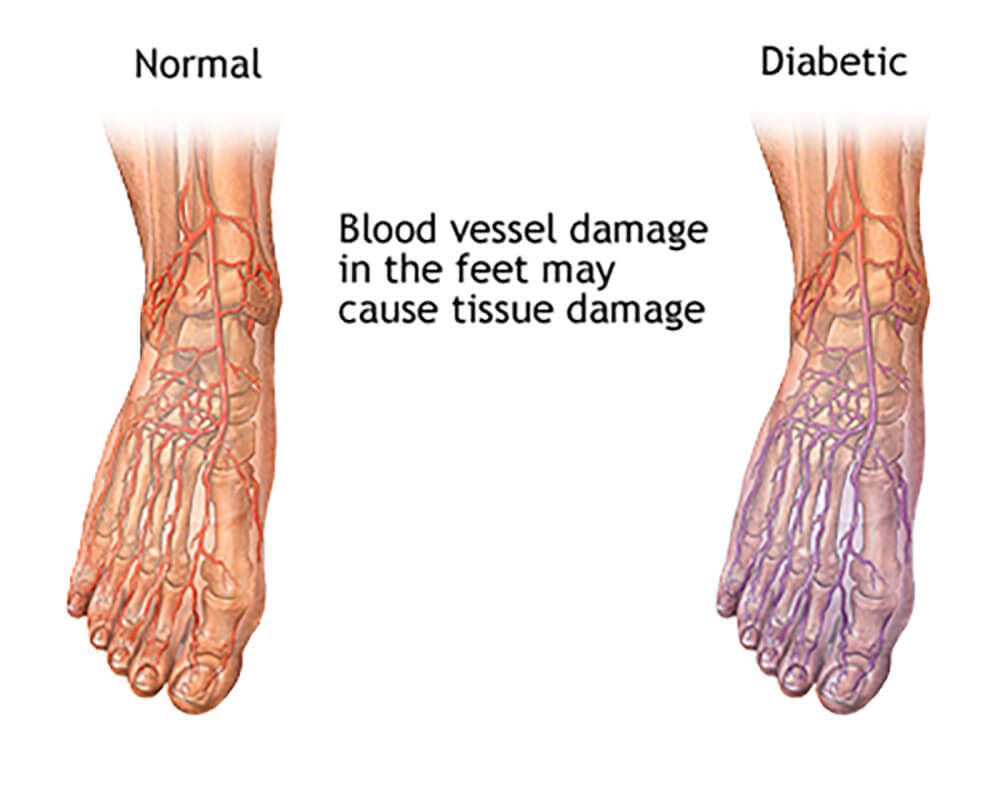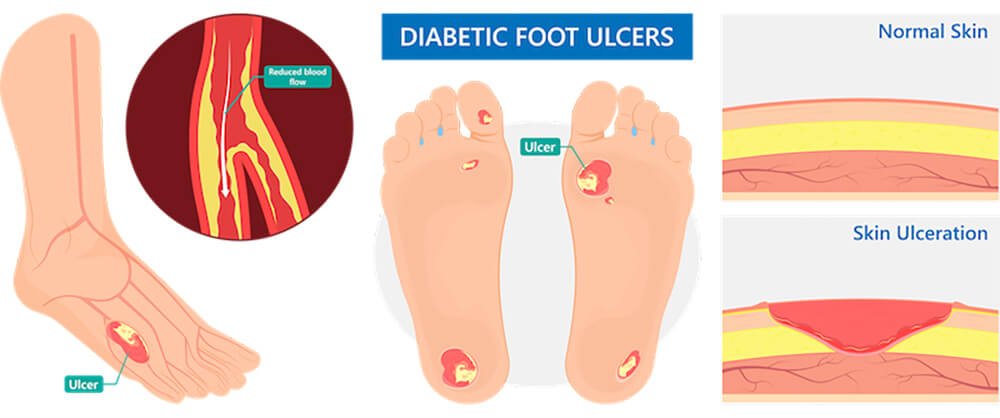When we think of Diabetes it is easy to focus on sugars as the biggest concern. But did you know that Diabetes can affect a range of other structures throughout the body including the eyes, kidneys and the feet?
Diabetes can have a great impact on the blood supply, nerves and structure of the feet and lower limb if not managed properly.
It is important to consider:
- Diabetic understanding and knowledge
- Attitudes and behaviours towards Diabetes
- Appropriate examinations, support and management for Diabetic care

Understanding and knowledge about the effects of poorly managed diabetes and the potential for poor circulation, nerve pain or numbness and poor healing. Which is why it is important to maintain general foot care to prevent ulcerations and infections.
Attitudes and behaviour surrounding the complications of diabetes and how to appropriately manage it. If you are unsure, contacting a GP is always a great point of call. They will help direct you to a podiatrist and other vital health services that can assist in improving your overall health.

Appropriate examinations by a podiatrist are essential for prevention of complications and maintaining healthy feet. We recommend at least an annual check in to make sure there are no complications or changes to your feet. An examination with one of our podiatrists will include tests to assess:
- Vascular assessment (ensuring blood flow to the feet is adequate)
- Neurological assessment (any loss of feeling, pins and needles)
- Musculoskeletal (any toe deformities such as bunions that may be a risk for complications)
- Skin and nail care (ensuring there are no areas of built up hard skin, cracks or pesky nails that may be causing you grief)
- Footwear assessment (to prevent any discomfort or rubbing reducing ulceration risk)
Support and management another vital part to holistic management of diabetes is education and support. With our regular check ins, we will be happy to discuss any areas of your general foot health as part of the consult as well as providing education on preventing infections and avoiding complications. Some key points are noted below:
- Checking feet daily for any cuts, blisters, redness, or changes to prevent wounds
- Washing feet daily and drying feet thoroughly (especially between the toes!)
- Using talcum powder between the toes to keep them dry and avoid infections
- Using moisturisers daily on the tops and bottoms of your feet, especially around the heel
- Daily changes of socks
- Keeping nails short and avoiding painful pointy edges
- Wearing shoes at all times, even around the house
- Knowing and understanding the warning signs of an infection or wound and knowing who to contact for help.
Prevent the frustration of having to deal with these complications by booking an appointment with one of our friendly podiatrists at the Gait Way Podiatry team today.


